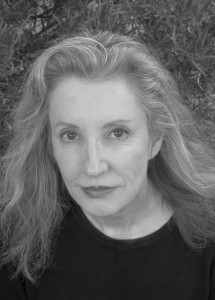Beth Mayer’s stories have been published in The Threepenny Review, The Sun Magazine, and The Midway Review. Her debut story collection won the 2019 Hudson Award from Black Lawrence Press. I was delighted to ask her some questions about her beautiful collection.
VP: We Will Tell You Otherwise focuses on the act of telling. Each of the individual story titles includes the verb to tell. How did you come to realize that was a central theme of these tales? And how did you choose the title of the collection?
BM: When I write, my characters boss me around and engage with my obsessions, curiosities, longings, and fears. It’s a lovely and surprising and personally challenging process. As I launched and drafted and revised each of these stories, I did not write toward a unifying theme. Only later did I recognize the urgency of each character’s telling, their longing to be heard. One line from what I now consider the title story kept humming—“I Will Tell You Otherwise”—then announced itself as the heart of the collection. When that shined out so clearly, the whole book made sense. This allowed me to re-engage with every story, like a discovery.
VP: And who is the “we” of the title?
PHOTO: Mark Riddle Photography Studio
BM: In my mind, the “we” in the title certainly includes the individual speakers from each story, along with the whole of their collective voice. However, as the author, I count myself among the “we” who needs to tell my stories and be truly heard. But I also hope to leave this notion of “we” open for readers. Maybe some will identify with the teller in one story. Others may feel like part of the collective. Perhaps for some the title is a larger clarion call.
VP: The stories are wonderfully varied and unique, but all take place in the Midwest. You poke gentle fun at the Midwestern habits, behaviors, and mores of your characters. What does it mean to you that they all come from that region?
BM: In many ways, I am a proud Midwestern. Growing up, I didn’t enjoy an expansive world-view or experience other regions of the country. My examination of Midwestern values, limits, generosity, brilliance, fears are as much internal as they are a critique. In my life and in my writing it is not my business to point at anyone and say “you should be better,” but rather to challenge the deepest regions of my experience and imagination. This comes from a stance of love. So, the people who inhabit the place I come—me among them—are worthy and beautiful and flawed, just like humans on the rest of the planet.
VP: Many of these stories mine the fertile territory of families. You convey complex relationships between parents and children, and between siblings of all ages. I sensed in each story that the characters come from a people.Can you say more about what your characters gain from the interconnectedness within families and also how families entangle them?
BM: Our deepest human longing, I think, is to be known. But there is a cost to this arrangement, isn’t there? That interests me. What are those costs and why do individuals choose to engage—or not—with others? On what terms? I have empathy for how our experience, character defects, and fears can block us from authentic intimacy.
VP: How did you come to write short stories? I’m always curious about the path to publication of a debut book. How has your writing journey unfolded?
BM: Some of the stories in this debut short story collection were born when I was pursuing my MFA. Early drafts of these appear in my MFA thesis. I want to be transparent about my process and pace here, because I know how it feels to wonder how long something might take, to worry if a book will ever be done and find a home. After graduate school, as a working mother with school aged children, I found that while I was able to keep reading—which I did, widely—I was only able to devote specific seasons of time to my writing. During these deliberate seasons, I engaged with a writing group, the Loft, and writing friends as I revised, tossed, wrote new stories, and worked on my evolving manuscript. Looking back, I am so glad that my book was not picked up sooner. I love this collection now. I believe in it. When I say “ten years,” this is what I mean.
VP: So many writers feel pressure to write novels when they’d rather stick with stories, but the publishing industry prefers longer works of fiction. Are you working on a novel or are you happy to continue with story writing?
BM: Yes, and isn’t that unfortunate? As I writer, I got this message a few times as well. But here we are, and my book is in the world. That was the work I needed to do, which wasn’t about what might sell in a certain market. So be it. My love for short stories is undeterred. And? I am working on a novel now because that is the shape of the story I want to write.
VP: Whose short stories do you admire and like to read? Whose stories do you think most resonates with your own?
BM: Alice Munro is a master who inspires me. I also happen to admire her as a woman, living her full, rich life, and without apology. I love Amy Hempel, Lorrie Moore, Karen Russell, and Carmen Maria Machado.
VP: Anything else you’d like to share about your collection or your life as a writer?
BM: I am grateful to Black Lawrence Press, my friends, my teaching colleagues, my family. And you! Thank you for your kind words and astute questions. This interview was a pleasure.
Black Lawrence Press (author/purchase page: https://www.blacklawrence.com/we-will-tell-you-otherwise/
Website: https://bethmayer.com/
Twitter https://twitter.com/bethjmayer




